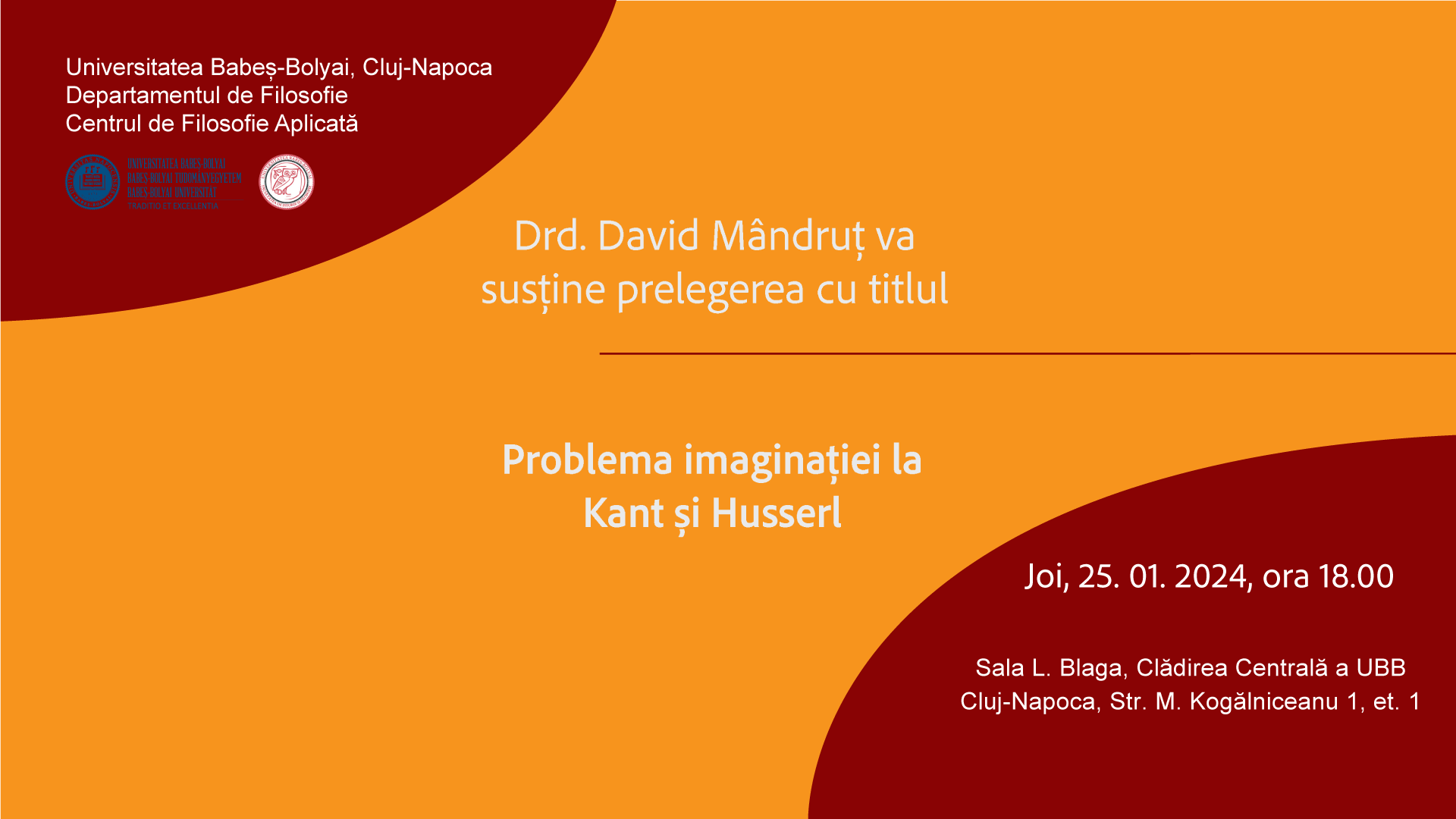The purpose of the conference is to analyze the case of productive imagination in both Kantianism and Husserlian phenomenology. The title suggests that one of the first tasks to be made is to differentiate the productive form of imagination from the reproductive one. Immanuel Kant was the first to ascribe a transcendental value to the faculty of imagination, considering it to be a productive power of the mind. The analysis will interrogate the issues of Kantian schematism and the complex relation between imagination and aesthetic experience, such as the encounter with the beautiful and the sublime. Considering the experience of the sublime, and its relation to imagination via the instant, the issue of temporality will also be addressed. Moreover, in the case of Husserlian phenomenology, phantasy involves a certain “as if” function, which pertains to the realm of the imaginary. A central aim of the conference is to show how, in an intersubjective context, productive imagination might account for the transference of sense, which would result in the constitution of cultural worlds. Furthermore, a distinction should be made between different acts of consciousness, therefore, phantasy will be compared with perception and memory etc. By virtue of this comparison, one might see how different acts of consciousness might interact or differentiate themselves from one another. Edmund Husserl explains the relationship between phantasy and intersubjectivity in some passages from Husserliana XXIII, whereas the British psychoanalysis, Donald Winnicott, gave us a hint about the fundamentally asymmetric nature of intersubjective phantasy, as it is to be found in the case of children playing together. In the end, we will examine the accounts of Edmund Husserl and Donald Winnicott regarding the case of intersubjective phantasy.

